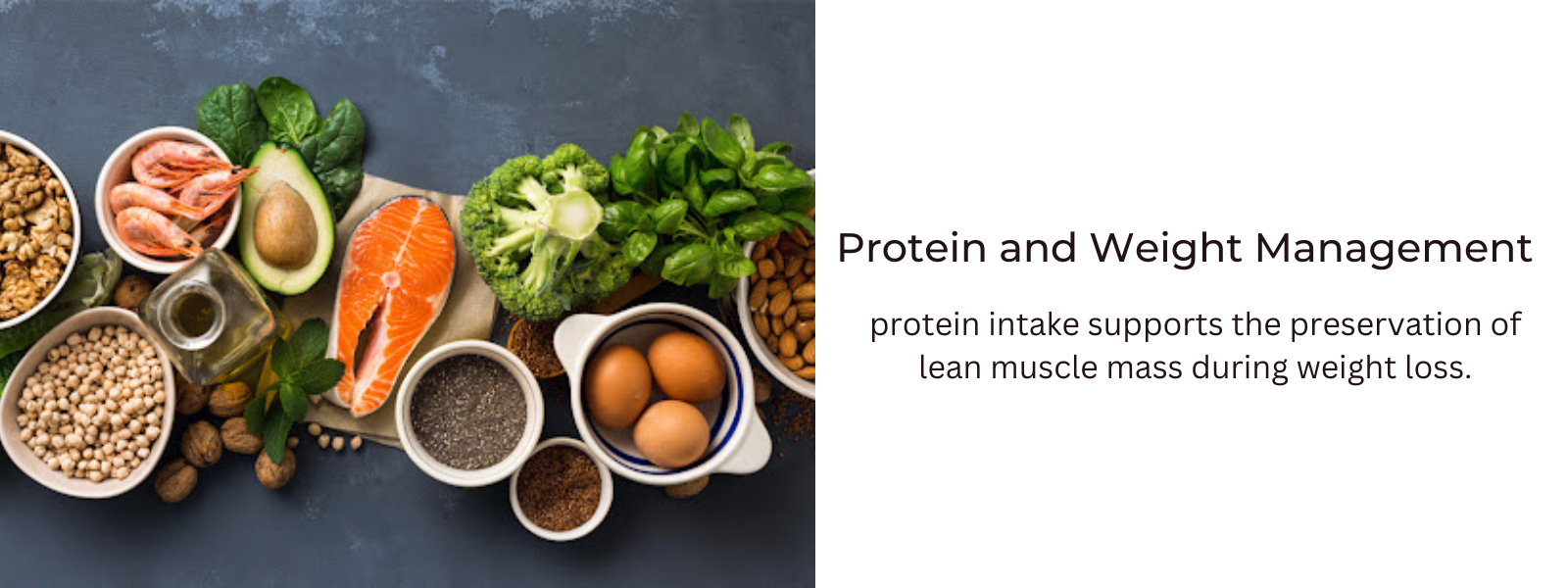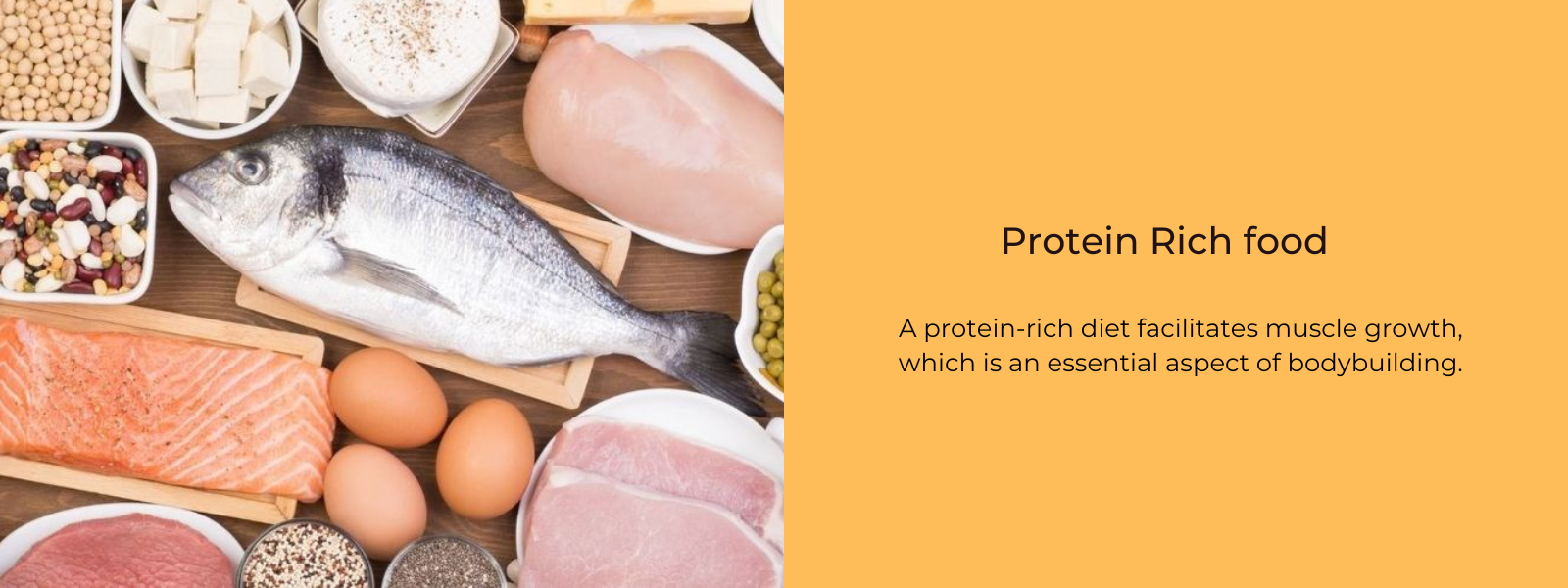Protein is vital for building lean muscle mass due to its role as the primary building block for muscle tissues. When engaged in physical activities, especially resistance training, muscles undergo stress and micro-tears that require repair and recovery. Protein provides the essential amino acids necessary to repair and rebuild these damaged muscle fibers, promoting muscle recovery and growth. Additionally, protein supports muscle protein synthesis, the process responsible for creating new muscle tissue. Higher protein intake, coupled with exercise, aids in preserving existing muscle mass and fostering the development of lean muscle, improving strength, endurance, and overall athletic performance. Ensuring an adequate and consistent supply of protein through a balanced diet is crucial for individuals seeking to build and maintain lean muscle mass effectively.
Table of Contents
What Is Protein?
Proteins are large, complex molecules made up of smaller units called amino acids. They are crucial biomolecules found throughout the body, serving a multitude of functions necessary for life. Proteins are involved in various bodily processes, including:
- Building and Repair: They form the structural components of cells, tissues, muscles, and organs, contributing to their growth, repair, and maintenance.
- Enzymes: Many proteins act as enzymes, facilitating chemical reactions in the body, aiding in digestion, metabolism, and other biochemical processes.
- Hormones: Certain proteins serve as hormones, acting as chemical messengers that regulate various physiological functions.
- Immune Function: Some proteins are part of the immune system, contributing to immune responses and defending the body against infections.
- Transportation: Proteins help transport molecules such as oxygen, nutrients, and waste products throughout the body.
- Regulation: They play roles in cell signaling, gene expression, and the regulation of biological processes.
What Do You Mean By Lean Muscle Mass?
Lean muscle mass refers to the portion of the body composed of muscle tissue without a significant amount of fat. It represents the muscle tissues, tendons, ligaments, and bones, excluding the body's fat content. Lean muscle mass plays a crucial role in various bodily functions, including movement, strength, stability, and metabolism. Having a higher proportion of lean muscle mass contributes to a leaner, more toned appearance, increased metabolism, and improved overall health. Building and maintaining lean muscle mass is often a goal for individuals aiming to enhance athletic performance, improve body composition, and support long-term health and vitality. Regular exercise, particularly strength training or resistance exercises, combined with a balanced diet rich in protein, is key to developing and preserving lean muscle mass.
Role Of Protein In Building Lean Muscle Mass:
- Chicken Breast: An excellent source of lean protein, chicken breast is low in fat and high in quality protein, aiding in muscle repair and growth.
- Turkey: Similar to chicken, turkey is rich in protein and low in fat, making it a favorable option for building lean muscle.
- Fish (Salmon, Tuna, Cod): Fish varieties like salmon, tuna, and cod offer high-quality protein along with essential omega-3 fatty acids, supporting muscle recovery and overall health.
- Lean Beef: Lean cuts of beef, such as sirloin or tenderloin, are rich in protein and contain essential nutrients like iron and zinc, crucial for muscle health.
- Eggs: A complete protein source, eggs contain all essential amino acids necessary for muscle building. Additionally, they are a convenient and versatile option for meals.
- Greek Yogurt: High in protein and low in carbohydrates, Greek yogurt is rich in casein protein, beneficial for muscle recovery and growth.
- Cottage Cheese: Another dairy option, cottage cheese, is a good source of casein protein, suitable for consumption before bedtime to support overnight muscle repair.
- Tofu and Tempeh: Plant-based options like tofu and tempeh are rich in protein, making them favorable choices for vegetarian or vegan diets focused on muscle building.
- Legumes and Pulses: Beans, lentils, chickpeas, and other legumes offer a combination of protein and fiber, aiding in muscle repair and growth.
- Quinoa: A complete plant-based protein, quinoa is rich in essential amino acids, making it a valuable addition to a muscle-building diet, especially for those on vegetarian or vegan diets.
Exercise or Proteins: Which Is More Important For Building Lean Muscle Mass?
Both exercise and protein are essential components for building lean muscle mass. They work synergistically to promote muscle growth and development:
- Exercise: Resistance training, such as weightlifting, bodyweight exercises, and resistance band workouts, is crucial for stimulating muscle growth. These exercises create micro-tears in muscle fibers, prompting the body to repair and rebuild them, leading to muscle hypertrophy (increase in muscle size). Consistent and targeted exercise routines are fundamental for initiating the muscle-building process.
- Protein: Adequate protein intake is equally vital as it provides the essential amino acids required for muscle repair, growth, and recovery. Protein serves as the building blocks for muscles, supporting the synthesis of new muscle tissue and helping repair the damage caused by exercise. Consuming protein-rich foods or supplements ensures that the body has a sufficient supply of amino acids to support the development of lean muscle mass.
For optimal results in building lean muscle mass, it's crucial to combine both aspects: regular resistance training to stimulate muscle growth and adequate protein intake to provide the necessary nutrients for muscle repair and development. A well-rounded approach that includes appropriate exercise and adequate protein consumption supports the body's ability to build and maintain lean muscle mass effectively.












Leave a comment